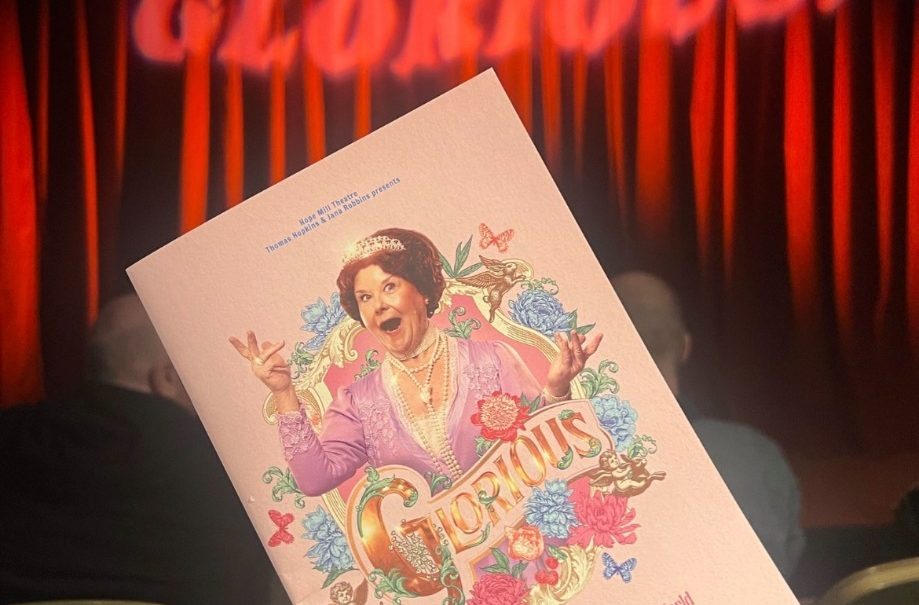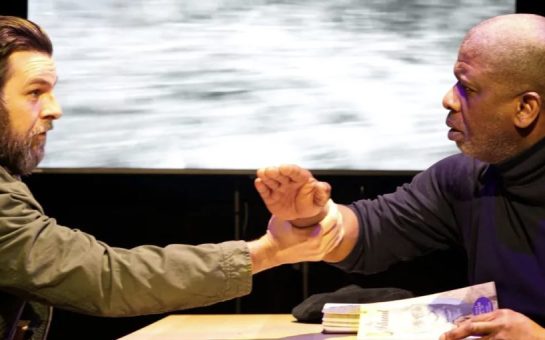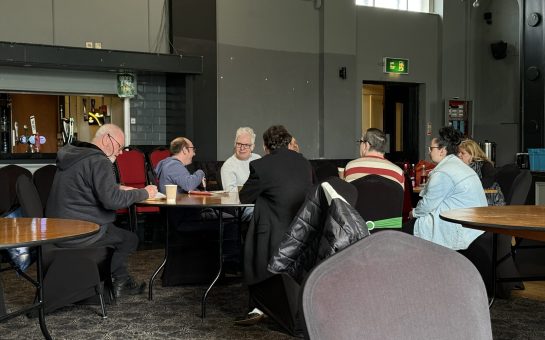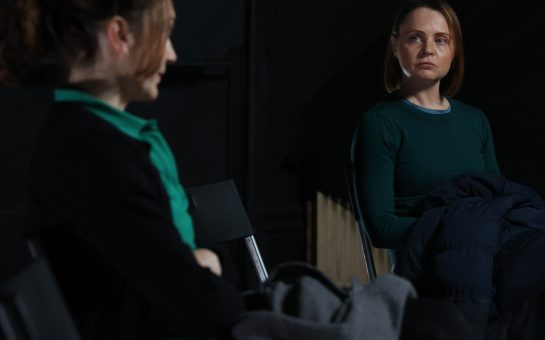Glorious! finishes its successful four-week run at Hope Mill Theatre, Ancoats, Manchester this month.
The lavish production, complete with fabulous costumes, extravagant sets and a lead performance by Wendi Peters, has earned rave reviews during its production. It tells the true story of American socialite Florence Foster Jenkins, who was known for her flamboyant costumes and infamously off-key voice, leading her to be dubbed the “worst singer in the world”.
Phil Clack, the freelance stage manager at the theatre, masterminds the whole show.
She said: “If I run you through my day, I arrive at the theatre before anyone else and get the costumes from the dryer and hang them up. I then power on all the lights and start doing checks and organising the set up. I sweep and mop the stage.
“I then complete all the sound checks and draw the curtain up. I’m also communicating with front of house, to make sure we’re adhering to times.“
With the many sets, including several different apartments, and flamboyant wardrobes, the job has come with a few tasks to overcome.
“’I’d say the most challenging part of the job is the scene changes. This play has quite a few, from several different apartment scenes and all the performances Florence gives. There’s a lot of stuff that’s tight with time. I combat it by making sure the curtain choreography is always faultless!”
Phil has done the job for a few years now, landing placements at theatres straight out of university, where she attended The Liverpool Institute of Performing Arts. While COVID threatened to derail the course in her first year, with planned theatre trips being cancelled, she worked hard to ensure she had placements to go into as soon as the lockdown rules were lifted.
She’s since worked on a wide variety of productions, from musicals to intellectual theatre.
She said: “This has been such a good play to work on, as it’s a period piece so the sets have been so outlandish. My favourite part of the whole job would have to be the adrenaline rush, as it feels like I’ve got everything at my fingertips, and I’m helping things go smoothly. While the audience are enjoying themselves and relaxing, I’m at the back, making sure every little thing is running easily.”
Phil also works closely with the crew and other managers to get the props up and running. “The influence I have over the budget of plays and what I work with isn’t extensive, but the best thing is often making it go so far with a tiny amount. Delegating a props budget and often with very tight allocations can make or break the play.”
She says the smallest budget she ever worked with was £25, with which 60 dancing girls had to be fully clothed and made up!
The hardest part of the job is always tech week, which is constantly challenging. This is a week of technical rehearsals for lighting and sound preparations before the dress rehearsal.
“There’s lots of different departments that have to hit their markers, and getting stuff done is always the challenge. There’s a lot of time management involved, making sure everyone is on the right page.”
This particular show wasn’t without its hurdles. “The challenges to staging were that we had to work around the space, the theatre here isn’t traditional, it’s a 1940s one so it can be oddly shaped. But we ended up making it work to our advantage! There’s also a lot of costume prep that we had to adhere to. “
“This play will appeal to an audience of everyone, it’s very general. Children may not understand but it’s a bit of fun, different people find different things funny.”
The difference between working on musicals or plays are the elements varying in size, she says. As musicals tend to be more fast paced, there are a lot of changes in choreography and microphones.
“You have to make sure you leave enough time.
“The things I don’t like are that you need to be careful you aren’t working too hard and doing too many hours. You need to take all your breaks. I do love it though and I’m so grateful to do something I love. “
While the future of theatres and public art was uncertain during 2020 and lockdowns affected the industry particularly hard, Phil hopes the institutions can thrive once again.
“I think the benefits of theatre are huge! It’s an art form that can completely change your opinions and thoughts. My opinion regarding government funding of the arts is that much more can be done, there isn’t a lot of emphasis on them now. Smaller theatres really struggle and having to apply for funding can be hard.“
With the wide array of theatres across the country totaling 1,100, Phil says the greatest places are still definitely up north. “In my opinion the best theatres to do theatre in are Liverpool and Manchester. The London theatres are bigger and more competitive. Here, we can directly involve local communities, and you can see the matinee performances are so packed, as schoolkids can attend.
“What appeals to me most about the theatre and my job is that I really didn’t want an office job. I can’t act but love the creativity and the influence I have over something. I love helping people with the plays and having an impact.“
In the era of streaming, cinemas are struggling to stay afloat, let alone live theatre. Phil described how it has impacted her industry. “I think the current biggest threat to theatres are the prices. They put people off, as they aren’t accessible. The more we create stuff that actively engages with younger people, the more people keep coming.
“The impact of theatre on cities is so big, it allows people to have an enjoyable evening out, and it’s more interactive than a screen. It helps people be empathetic and tell stories.”
Glorious! is on until 30th March at Hope Mill Theatre.





Join the discussion